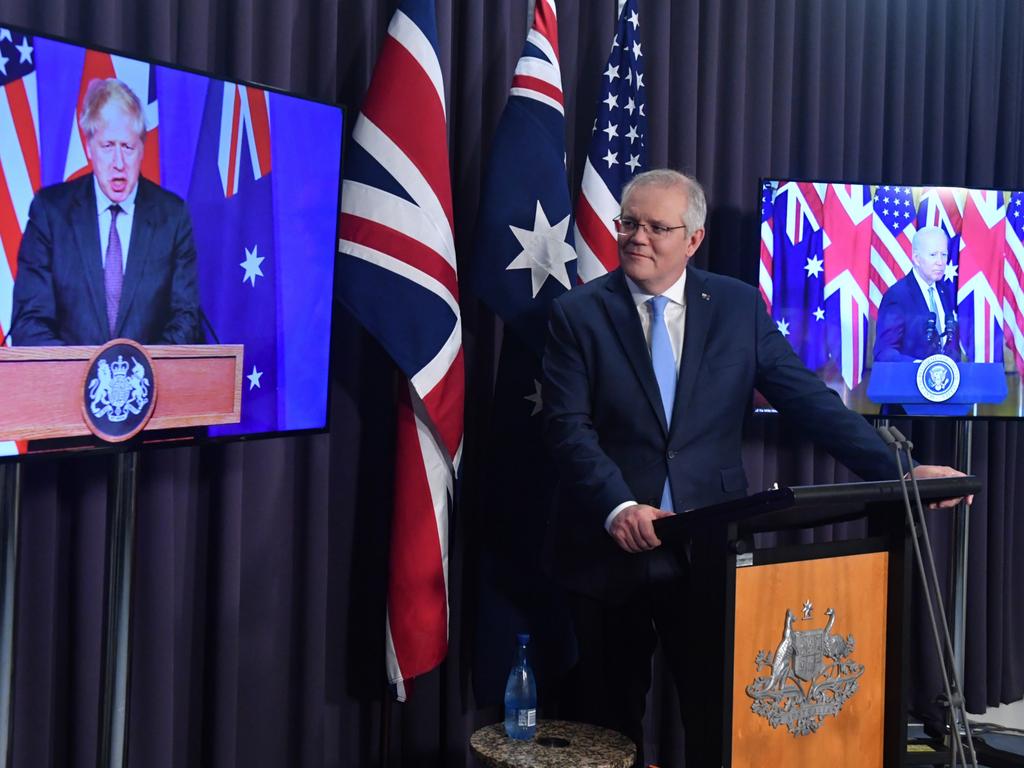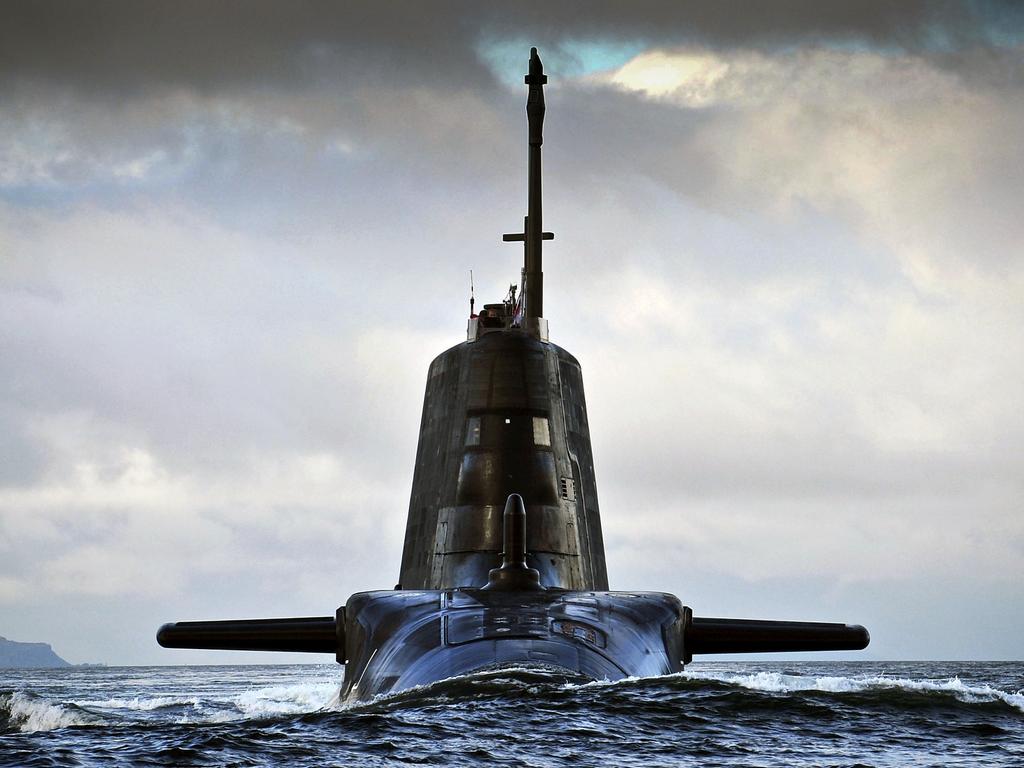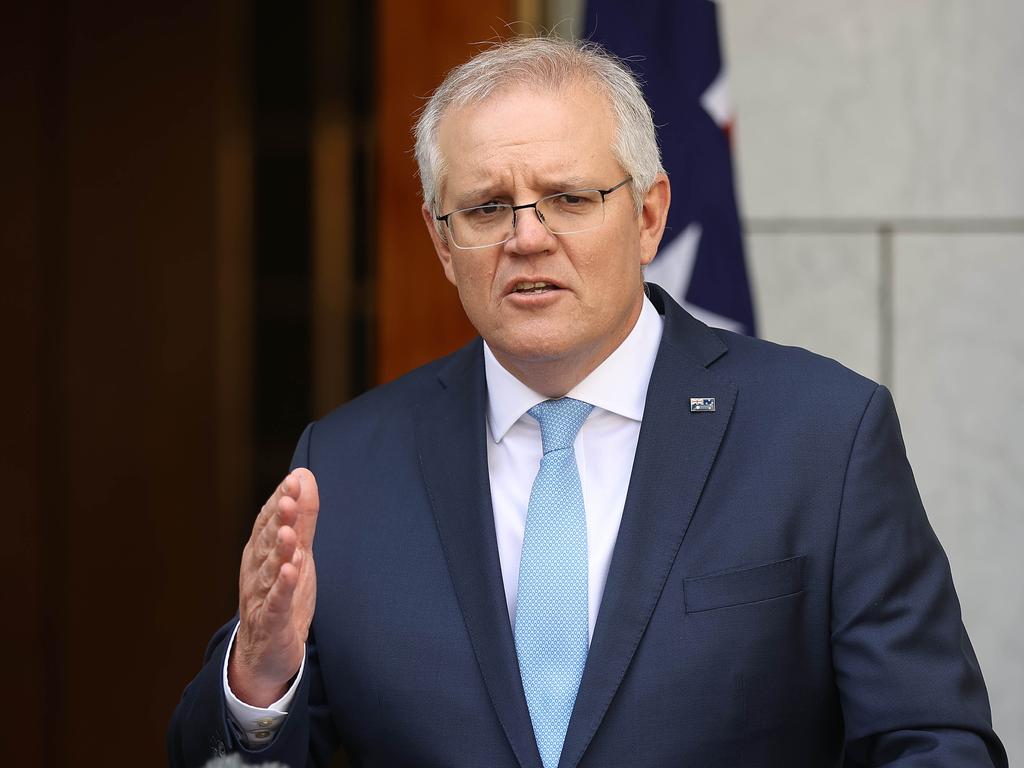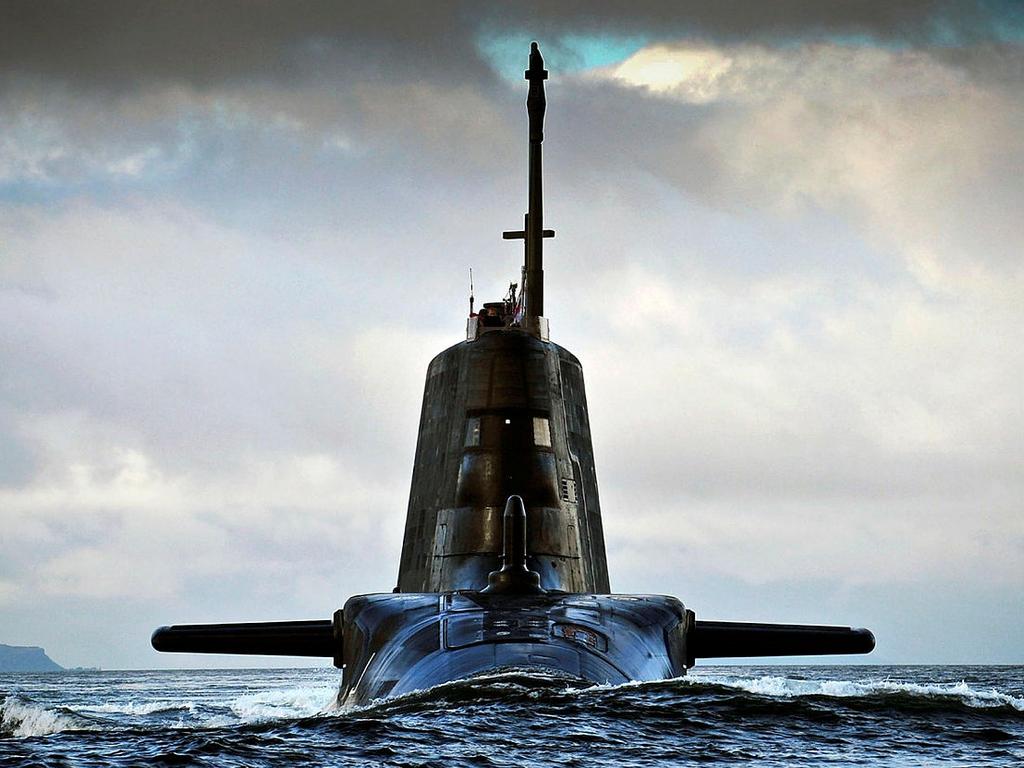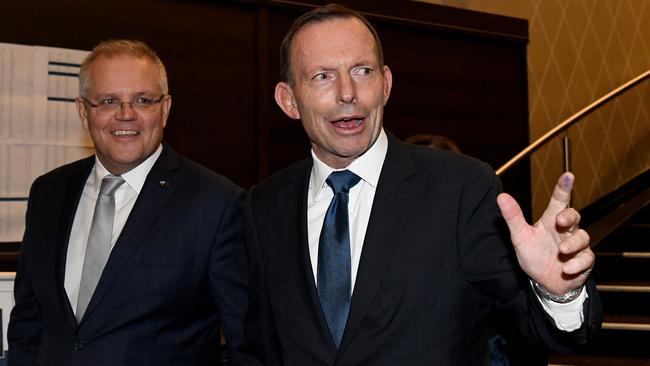
In making the historic decision for nuclear-powered submarines, Scott Morrison has shown leadership of the very highest quality.
There were always three arguments used against nuclear subs, even though they were obviously the best choice for Australia: first, we lacked a nuclear sustainment industry; second, the Americans wouldn’t trust us with them; and third, Labor wouldn’t wear it.
For now, the Prime Minister is still ruling out nuclear power on land, to match nuclear power at sea; but this is almost certain to change, if only because civil nuclear engineers will be needed to maintain a naval capability. Obviously, the China challenge has dispelled any doubts the US might have had about sharing nuclear technology with us, as it has long done with the United Kingdom. And given that this is to be a treaty with Joe Biden’s America, not Trump’s, Labor has cover should Anthony Albanese judge that the national interest demands it.
It is the essence of leadership to discern the circumstances that have propelled a necessary change from being impossible to almost self-evident. All credit to Scott Morrison for seizing this moment.
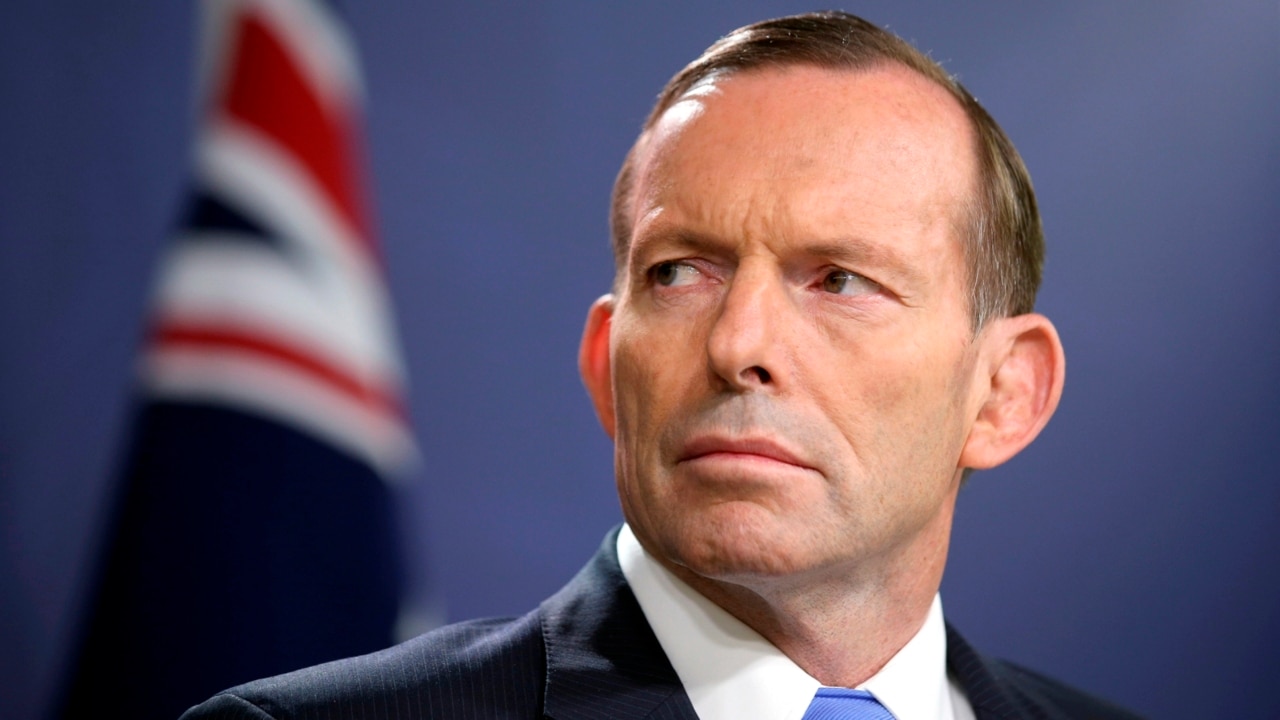
When the Russians despatched an intimidatory naval task force to northern Australian waters at the time of the G20, I discovered that we only had two operational submarines and both were too slow and too far away to intercept it. Likewise, we only had the Orion surveillance aircraft to monitor a Chinese task force passing between us and Java.
It was always folly to take an existing French nuclear submarine and waste 15 years redesigning it and rebuilding it as an inferior sub to what was potentially available now. Again, it’s to the Prime Minister’s great credit that he’s been prepared to junk a decision that was wrong from the beginning and which has just become worse over time.
Whether it’s to be the British Astute class or the American Virginia class need not take the 18 months to decide that the PM suggested on Thursday. Under no circumstances should the navy be allowed to tinker with the design because that just means more delay. Whether they’re built here or initially abroad, the objective must be to get delivery of the first new subs within a decade.
Following Thursday’s decision, it could even be possible to lease a nuclear submarine and run it with a composite crew much sooner.
Given that China is well into what’s probably the biggest military build-up in history, time is not on our side. We must assume that what’s now the world’s biggest navy is more than a mere coastguard and that Beijing wants the capacity to back up the 14 demands it recently made of Australia with force if necessary.
It can’t be stressed too much that the problem here is the Beijing government, not the Chinese people. Chinese migration to this country testifies to the universal yearning for freedom and opportunity, and the flourishing of Chinese people in this country is an ongoing reproach to the totalitarians in Beijing.
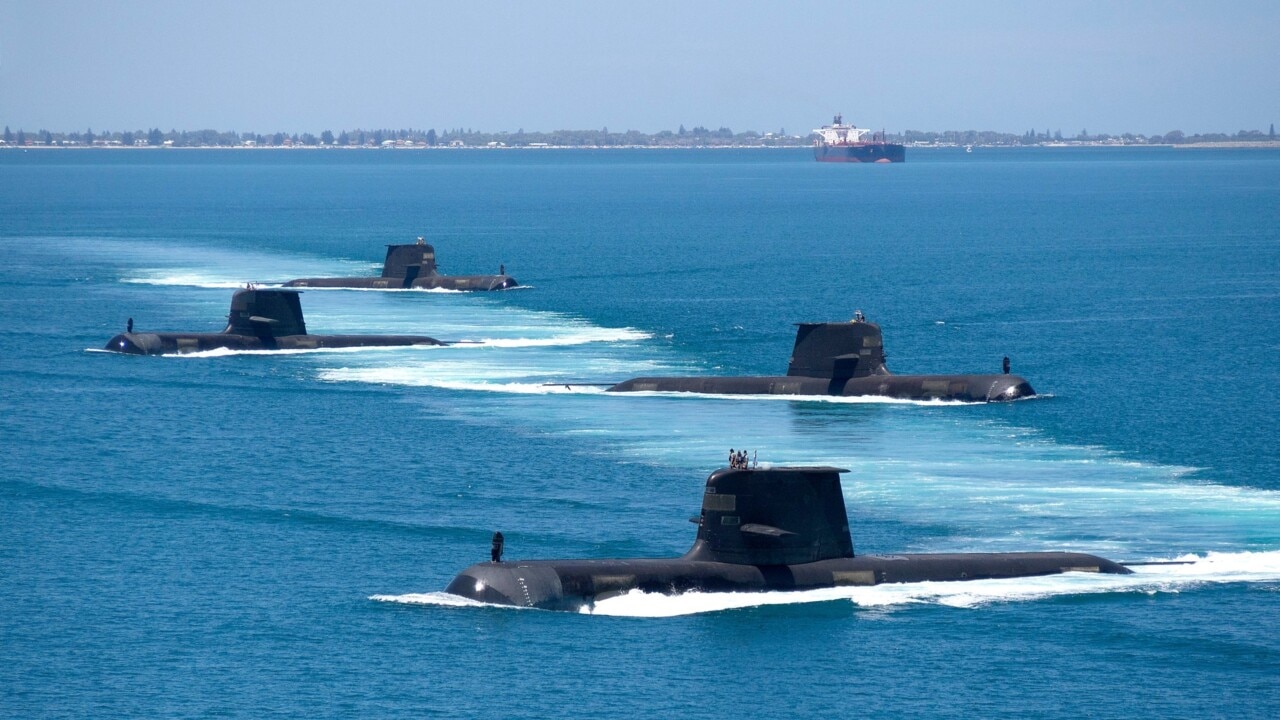
Not only has the communist dictatorship suffocated the freedom of Hong Kong in breach of its one-country-two-systems treaty, put a million Uighurs into concentration camps, and implemented an Orwellian hi-tech-enabled surveillance system over its own people; it’s also militarised the South China Sea in breach of international law, ambushed Indian forces in the Himalayas, and is now threatening Taiwan, a democracy of 25 million people that’s never been part of communist China, has not effectively been ruled from Beijing since 1895, and is proof that there’s no totalitarian gene in the Chinese DNA.
Under the Taiwan Relations Act, the US is obliged to resist any attempt to coerce Taiwan, and under the ANZUS treaty we are obliged to “act to meet the common danger” in the event of an attack on US forces. The best way to ensure that the unthinkable remains unlikely is to be ready for the worst.
Notwithstanding Thursday ’s momentous decision, there is more to do. Measures that could be completed in months, not years, include onshoring three months of fuel and doubling and tripling recruitment into the reserves to start to create the military manpower that we will need, especially for the navy. As quickly as possible, we need more effective defensive and offensive cyber capacity plus anti-missile defences, at least for military bases.
A country’s fate decades hence can depend on the decisions that governments have made – or failed to make – now. Today’s decision will give Australia vastly more strength to resist aggression and vastly more sovereign capacity to stare down even a superpower if needs be. Surpassing even the Howard government’s intervention in East Timor – which was the first ever Australian-initiated-and-led military expedition – this sends a clear signal to those who wish us well, and to those who wish us ill, that we are a serious country and a force to be reckoned with.
Tony Abbott served as prime minister of Australia, 2013-15.


